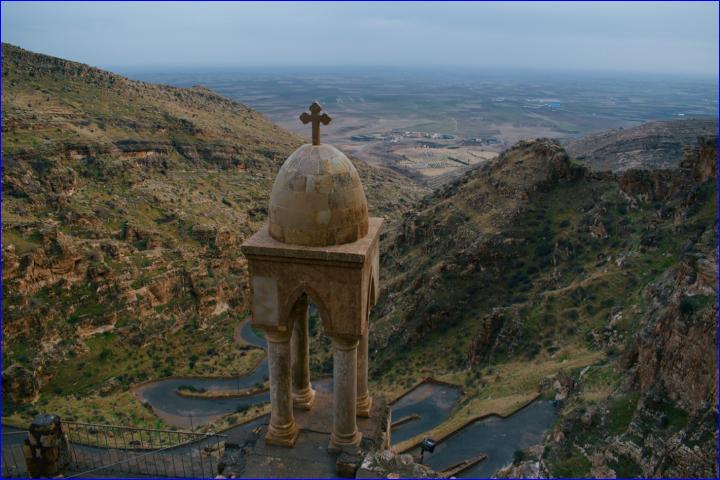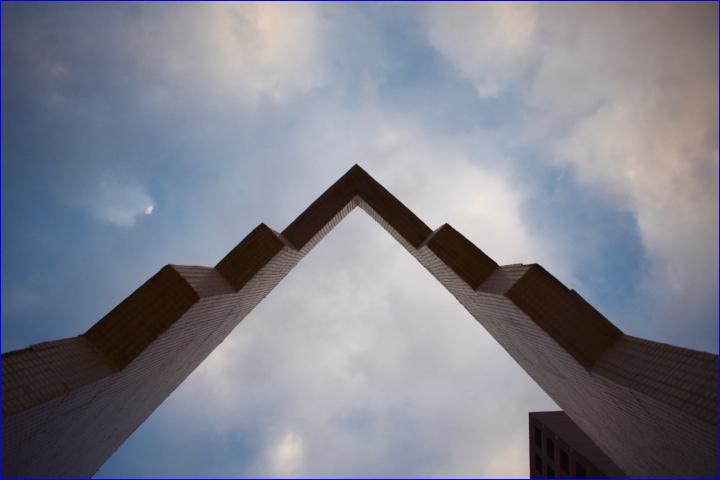


 Levi Clancy)
Levi Clancy)
On May 11th, Mr. Hurmuz Mushi, an Assyrian activist and journalist, stumbled upon the artifact while he happened to be digging for a water pipe in the region of Fayda in northern Iraq. His discovery would have brought nothing but joy to an archaeologist or museum curator. In a video posted online on the same day, Mr. Mushi made a sensible request that the Iraqi or Kurdish governments take the necessary steps to preserve the newly discovered antiquity.
The response from the Kurdistan Regional Government (KRG), however, was anything but sensible: On June 17th, Kurdish security forces, the Asayish, threatened his life and detained the journalist for three days until he was released on conditional bail for roughly $6000, an enormous sum in Iraq.
KRG abuses are widely documented but have usually focused on suppressing political dissent and keeping citizens under the control of the ruling families and parties in the region. To better understand the more peculiar nature of Mushi's arrest, it is helpful to look at the KRG's approach to Assyrian material heritage in the past.
In February 2016, a Kurdish flag was spray-painted onto a 2800-year-old Assyrian rock relief near the town of Maltai. After being removed, another Kurdish flag was spray-painted on it again five months later. A year later it was vandalized a third time, causing permanent damage. Assyrian cultural organizations and politicians protested and notified the KRG -- all to no avail.
The KRG's sustained attempt to co-opt Assyrian material and cultural heritage is rooted in fears that the very presence of anything Assyrian serves as a direct challenge to Kurdish claims of legitimacy over lands that have been subject to a decade-long program of Kurdification, annexation, and land-grabs, aided and abetted by the apathy of the central government in Baghdad and the chaotic interregnums after the Iraq War and the fall of ISIS. The situation of Mushi, a contemporary Assyrian who stumbled on ancient Assyrian heritage in a region that is aggressively and proudly defined as Kurdish, illustrates an important defining tension.
Assyrians are the last Aramaic-speaking ethnic group in the world. The distinct, indigenous community -- whose members belong to various ancient Christian sects -- numbered nearly 1.5 million prior to the Iraq War but has fallen precipitously to under 150,000 today. The KRG's own repressive and anti-historical policy toward Assyrian heritage is itself part of broader trends -- of co-option and persecution -- that deepen Assyrian powerlessness.

 Levi Clancy)
Levi Clancy)
Since the 19th century, museums have occupied a paradoxical space in the Assyrian psyche. On the one hand, the methods by which Western museums acquired Assyrian antiquities has been questionable at best; on the other hand, the consistent instability of Iraq and ambivalence of the KRG and the central government in Baghdad has evinced that Assyrian material cannot adequately be protected in its place of origin. In the second decade of the 19th century, British archaeologist Cladius Rich began excavating Assyrian sites in northern Iraq. Archaeologist Paul Botta of France soon joined along, unearthing the palace of King Sargon II. Their discoveries catalyzed a movement: a flurry of Europeans and Americans unearthing 3,000-year-old Assyrian stone reliefs, tablets, and sculptures that would be sent to populate the collections of individual collectors and notable museums in London and Paris.
In more modern times, the politics of Iraq have turned looting into an art form in and of itself: During the Gulf War in 1991, over 2000 artifacts were stolen from excavation sites and museums. A decade later, within a week of coalition forces invading Baghdad, approximately 15,000 antiquities were purloined from the Iraq Museum, which housed some of the most ancient pieces in the world. In the years following, Assyrian archaeologist Dr. Donny George Youkhanna played an instrumental role in securing the return of thousands of treasures that were looted in 2003. But it wasn't long before ISIS's control of Mosul in 2015 saw militants pulverize a 3000-year-old Assyrian winged-bull sculpture, among other priceless artifacts. The pieces that survived destruction were sold on the international black market, earning the group millions of dollars.
Once Saddam Hussain rose to power, Iraq became increasingly associated with Assyrian imagery and culture, from winged-bull sculptures placed at the entrance of the Baghdad International Airport to the installation of a monument of Gilgamesh -- the hero associated with the eponymous epic -- in a park in the capital. Since Hussain's ouster these statues have remained relatively commonplace throughout the country. It is particularly frustrating that while the Iraqi government enthusiastically appropriates Assyrian statues, it simultaneously denies the Assyrian community any political power and dignity.
There are a number of steps that can be taken to properly document Assyrian material heritage. Columbia University's Mapping Mesopotamian Monuments project, for instance, conducts on-the-ground surveys of monuments in Iraq with the aim of archiving ancient heritage. If the KRG truly desires to uphold its claims of being an open society, it must promote such academic work and come to terms with the reality of Assyrian continuity in the Assyrian ancestral homeland under the KRG's jurisdiction. At the very least, the KRG must also allow Assyrians to -- for once -- handle their heritage on their own terms. Re-establishing agency and dignity for the Assyrian community must underlie any solution the KRG takes.
As a child, I would cherish my family's trips to the Metropolitan Museum of Art. Staring at the winged-bulls towering over me, my mother would reassure me in Aramaic,"cheepih bit hamzimee qatan." "The stones will speak for us." Even if our heritage in Iraq were to one day be imperiled by dictatorial governments, the archaeological treasures suffused throughout the country would attest to our existence.
Without significant changes to KRG and Iraqi policies, I fear that soon not even the stones will be able to speak for us.

or register to post a comment.